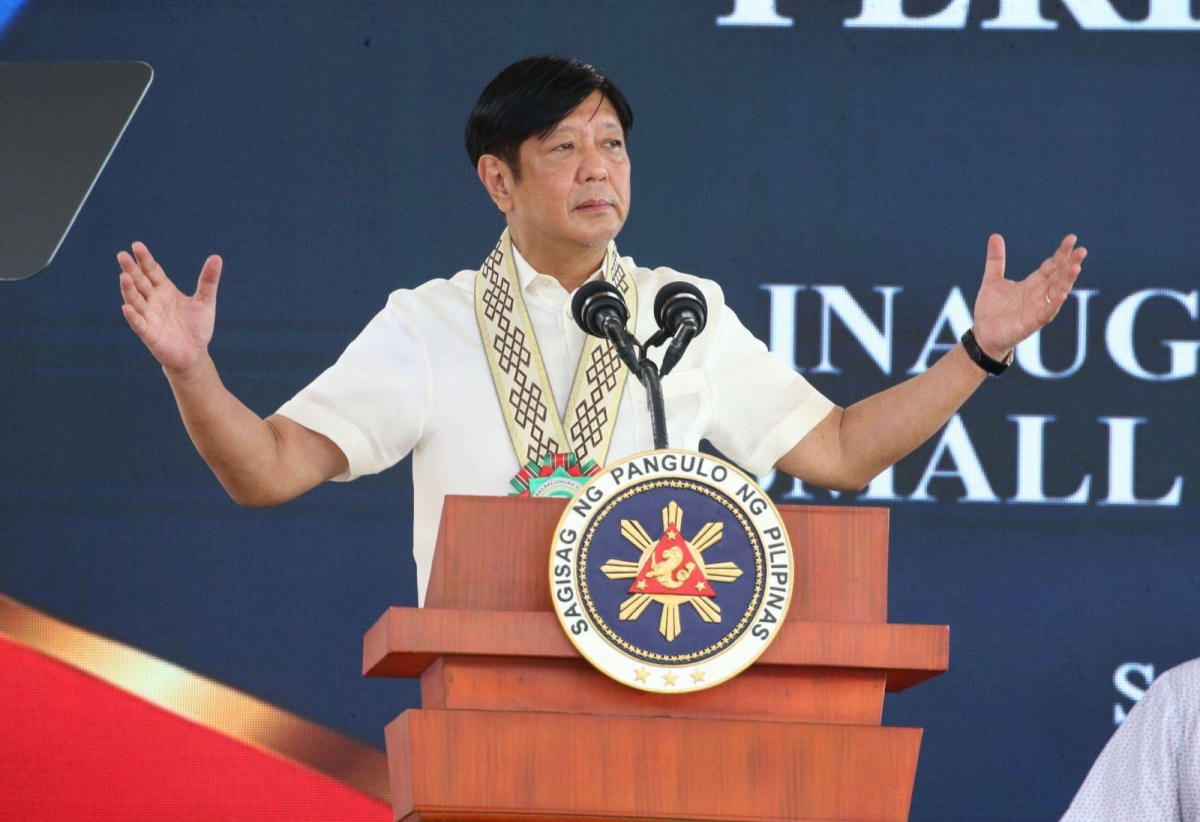(UPDATE) President Ferdinand Marcos Jr. announced on Friday that his administration is currently studying the possibility of amending the economic provisions in the 1987 Constitution. The aim is to make the Philippines a more attractive destination for investors.
The President expressed his views on charter amendments after efforts to revise the Constitution’s “prohibitive” provisions gained momentum in the House of Representatives. Speaking to reporters in Muntinlupa City, President Marcos emphasized that attracting investors to the Philippines is his primary interest.
“We are just beginning to study the economic provisions that hinder potential investors from coming to the Philippines,” President Marcos said. He further explained that the objective is to relax the constitutional constraints and create an investment-friendly environment in the country.
On Tuesday, Speaker Ferdinand Martin Romualdez stated that the time has come to loosen the provisions that limit foreign ownership in certain industries. The initiatives include exploring modes of charter change that do not involve the Senate, where previous attempts to amend the Constitution have failed.
“I believe that 2024 will allow us to revisit the Constitution. It’s timely, and we want to focus on the economic provisions,” said Speaker Romualdez, who is also a cousin of President Marcos. He mentioned that the House will use its Christmas break from December 16 to January 21 to study ways to amend the Constitution.
“We need to examine the procedural aspects of amending the Constitution and ensure that the economic provisions are supported by a continuity of government,” Speaker Romualdez added. He emphasized that the 19th Congress’s legacy could be its contribution to making the Constitution more attuned, sensitive, and responsive to the current times.
The proposed amendments to the economic provisions in the Constitution aim to attract more foreign investment into the Philippines. Currently, there are restrictions on foreign ownership in certain industries, which some argue hinder the country’s economic growth potential.
By relaxing these constraints, the government hopes to encourage foreign investors to bring their capital and expertise to the Philippines. This, in turn, would boost job creation, stimulate economic development, and enhance the country’s competitiveness in the global market.
The move to amend the Constitution’s economic provisions is not without its critics. Opponents argue that it may compromise national security and lead to the exploitation of the country’s resources by foreign entities. They also express concerns about the potential impact on local businesses and industries.
However, proponents of the amendments argue that the current restrictions limit the Philippines’ ability to attract foreign direct investment. They point to neighboring countries that have successfully liberalized their economies and attracted significant inflows of foreign capital.
It is important to note that any amendments to the Constitution would require a careful and thorough deliberation process. The government must consider the potential consequences and strike a balance between attracting foreign investment and safeguarding national interests.
Ultimately, the decision to amend the economic provisions in the Constitution lies with the Filipino people. It is crucial to ensure that the process is transparent, inclusive, and aligned with the country’s long-term goals and aspirations.
As President Marcos and Speaker Romualdez explore the possibility of amending the Constitution, it is essential to engage in a constructive dialogue that takes into account the diverse perspectives and interests of all stakeholders. By doing so, the government can make informed decisions that will shape the economic landscape of the Philippines for years to come.
Source: The Manila Times








